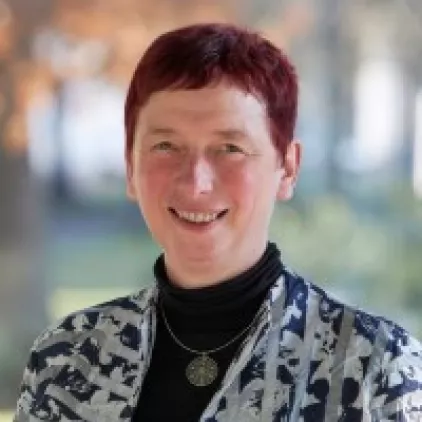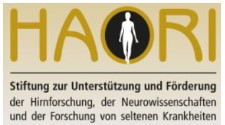2021 – 2025 COST-Action CA20113 ProteoCure – proteocure.eu – Management Committee for DE, Core Group, Co-Leader of Training Schools, Grant Awarding Committee
2020 Teacher of the Year, Focus Area Health, Jacobs University Bremen
2019 – present Consultative Board & International Advisory Board to the University of Nepal
2019 – 2023 Frey-Werle Stiftungsrat
2019 – 2021 Advisory Board of CeTICS, Instituto Butantan, Sao Paulo-SP, Brazil
2018 Teacher of the Year, Focus Area Health, Jacobs University Bremen
2018 Chair of the 12th Gordon Research Conference on “Protein Processing, Trafficking, and Secretion“, New London, NH, USA, 15-20 July 2018
2016 Vice Chair of GRC “Protein Processing, Trafficking, and Secretion“
2016 – 2023 Editorial Board and Review Editor (Animal Cell Biology) (until 2021) of Protoplasma - An International Journal of Animal, Fungal, and Plant Cell Biology
2013 – 2014 Co-Editor with Walter Stöcker of Book “Proteases: Structure and Function”, Springer-Verlag Wien 2014. doi:10.1007/978-3-7091-0885-7.
2013 – present Co-Organisation of Winter School on Proteinases and Their Inhibitors, Tiers, Italy, Brandstetter et al.
2012 – 2019 Co-Initiator and Co-Coordinator of the DFG Priority Program SPP 1629 “THYROID TRANS ACT” (Biebermann, Brix, Führer)
2012 Chair of the 17th Gordon Research Conference on “Proteolytic Enzymes and their Inhibitors“, Il Ciocco, Italy, 17-22 June 2012, and Inauguration of the 1st Gordon Research Seminar, Chair: Sheena McGowan, 16-17 June 2012
2010 Vice Chair of GRC “Proteolytic Enzymes and their Inhibitors”
2010 – 2012 Vice Speaker of Research Center MOLIFE, Jacobs University Bremen
2007 – 2009 Vice-President of International Proteolysis Society
2005 – 2009 Council Member of International Proteolysis Society, representing Africa and Europe
2005 Mentor Recognition Award presented by the University of California at San Diego
2004 – present Editorial Board of European Journal of Cell Biology
1996 – present Research Grants from the Deutsche Forschungsgemeinschaft (Art. 91 GG, Individual Research Grants, FOR 367, KFO 115, SFB 284, SPP 1629 as Co-Coordinator), European Thyroid Association, National Science Centre – Poland, Stiftung Bremer Rhododendronpark, Herbert & Inge Lampe Stiftung, HAORI-Stiftung Bremen
1995 – present ad hoc reviewer for Accrediting Organizations, Faculty Evaluation Committees (in Australia, Austria, Germany, UK, USA), Journals (Cell Reports, Biochem J, BBA, Biochimie, Cells, Endocrinology, EJCB, EJE, EJN, ETJ, Faseb J, FEBS J, Frontiers, JBC, JCS, JEM, Nat Comm, Nat Prot, Nucleic Acid Res, PLoS One, Scientific Rep, Thyroid, etc.), Study Groups (BBSRC, DFG, ISF, NIH, PSF, The Wellcome Trust) , Councils (in Canada, Germany, RSA), Foundations (incl. FWO, Fulbright, FWF Austria, German Cancer Foundation, US-Israel Binational Sci Found, Wolf Found), Trusts (BIF, NICHS-UK, Brain Tumour Charity-UK, Studienstiftung), and Institutions (in Belgium, Germany, UK, USA)
1990 – present Memberships in American Society for Biochemistry and Molecular Biology – ASBMB (2021-), American Society for Cell Biology – ASCB (1990-2018), British Society for Matrix Biology – BSMB (2007-2013), Deutsche Gesellschaft für Endokrinologie – DGE (2013‑), Deutsche Gesellschaft für Zellbiologie – DGZ, Deutscher Hochschulverband – DHV, European Society of Endocrinology – ECE (2007-), European Thyroid Association – ETA (2009-), Gesellschaft für Virologie – GfV (2022-), International Proteolysis Society – IPS (1999-), New York Academy of Sciences – NYAS (2008-2021)
Academic Committees and Responsibilities
since 2003 Scientific Head and Coordinator of the Reference Center for Confocal Laser Scanning Microscopy at Constructor University Bremen
since 2002 Biological Safety Officer, Constructor University Bremen
2004-2014 DHV-Representative, International University Bremen & Jacobs University Bremen
2002-2004 Member of the Academic Integrity Committee, International University Bremen
2000-2001 Member of the Advisory Board of the Representative for Equal Opportunity, Univ. Bonn

 European Thyroid Association, 2020 – 2021, ETA Project COVID-19 grant 2020
European Thyroid Association, 2020 – 2021, ETA Project COVID-19 grant 2020 DFG, COVID-19 Focus Funding, 2020 - 2022
DFG, COVID-19 Focus Funding, 2020 - 2022 HAORI Stiftung Bremen, 2020 – 2024, Neuronal cilia as potential viral entry sites
HAORI Stiftung Bremen, 2020 – 2024, Neuronal cilia as potential viral entry sites